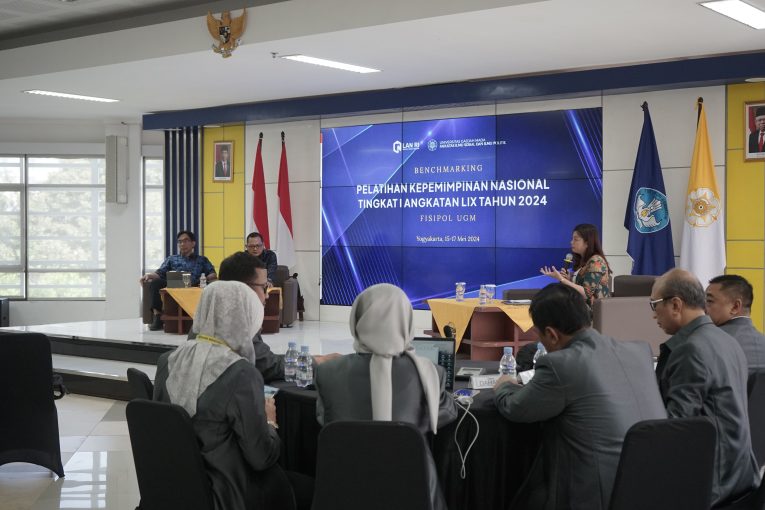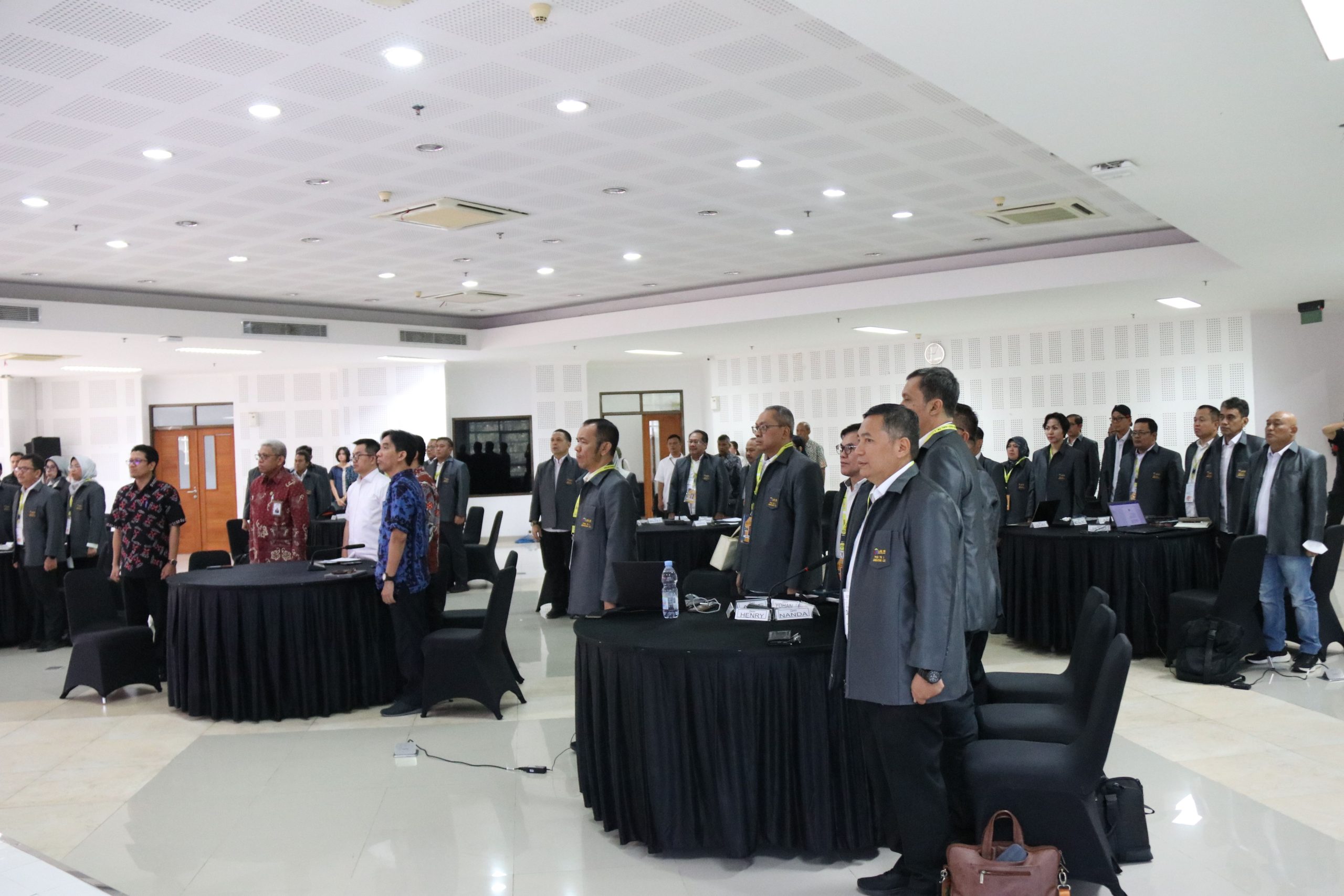
Yogyakarta, May 16th 2024─Technological development is something that cannot be avoided. Digital disruption or changes caused by digitalization has raised many national issues in Indonesia, especially in the field of employment. The urgency of handling digitalization was delivered by Widyawan, S.T., M.Sc., Ph.D., Lecturer of Electrical Engineering UGM and Dr. Nurhadi Susanto, S.H., M.Hum., Vice Dean for Finance, Assets and Human Resources of Faculty of Social and Political Sciences UGM as well as Lecturer of Public Policy Management UGM in the National Leadership Training (PKN) Level I on Thursday (16/5).
As policy makers, ASN needs to receive training to improve competence in dealing with current national issues. The Faculty of Social and Political Sciences UGM together with the State Administration Agency of the Republic of Indonesia (LAN RI) specifically held PKN Level I with digitalization and geopolitics material. These two things are expected to be the key to formulating national and innovative strategies based on technological developments.
“The infrastructure gap in our society is still visible. When many countries have started using 5G, Indonesia is still not ready in terms of equity,” said Widyawan. 5G signal-based technology is already being used by certain sectors, such as mining. 5G offers internet speeds that are much stronger and faster than 4G. This is suitable for the use of mining equipment automation in remote areas with minimal signal. Unfortunately, this technology is not yet fully ready to be widely implemented in Indonesia.
Widyawan also explained that human needs today are not only based on clothing, food and shelter, but also the need for technology. It is undeniable that technology offers various conveniences in human activities, but it also provides certain challenges. Widyawan described how today’s AI technology needs to be the focus of government discourse. “AI has no knowledge, it doesn’t know if it knows. It only generates what is inputted to it. In the past, only field workers were worried about losing their jobs due to automation, but now even intellectual workers are in danger of losing their jobs,” he explained.
Widyawan added, a population survey said that approximately 56% of the world’s population believes that AI will affect the world of work, and 36% are worried that their jobs will be replaced. This certainly needs to be followed up by the government on how the availability of jobs is not cut off by the use of AI. The threat of AI is in line with the condition of the Indonesian population ahead of the estimated demographic bonus in 2045. The working-age population that will dominate society certainly requires balanced employment. This idea supports the 8th Sustainable Development Goal (SDG) of Decent Work and Economic Growth.
As Dr. Nurhadi Susanto, S.H., M.Hum. explained, the difficulties experienced by Indonesia are the same as those in other countries. “The existence of digital disruption is not only the people who are worried, but the government must also be worried. We have to think about how to adapt to this condition. The problem is, we don’t have a baseline or guidelines that can serve as a foundation,” he said. He took the example of the recession experienced by the UK due to Brexit (Britain Exit) and Japan which is facing the burden of social aging. For this reason, Nurhadi hopes that the government can implement sustainable development or continuous improvement.

This ASN leadership training is basically held to improve the competence of future skills of the state apparatus. As a result, the government is expected to be able to think more openly to face the challenges of the times. However, this problem is not only the responsibility of the government, but all national elements. The Faculty of Social and Political Sciences UGM in the academic sector plays an important role in helping the government resolve these national issues. Strong institutions and cross-sectoral cooperation as stated in this event also support the 17th point of the Sustainable Development Goals (SDGs).
